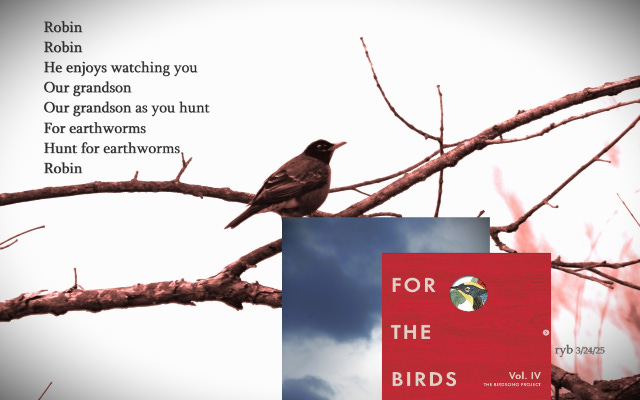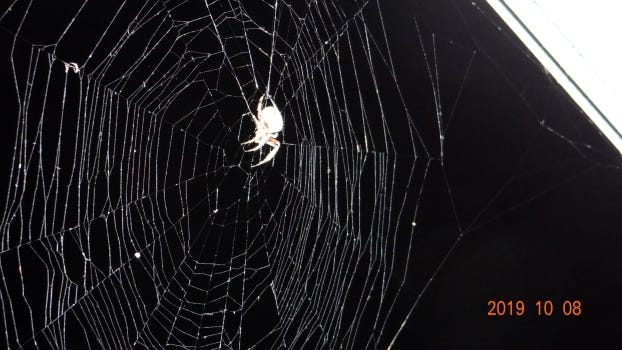The Geological Implications of Limestone and its Hypothetical Relationship with UFOs and Controlled Volcanic Eruptions
July 5, 2025
After a long break from creative writing to care for two grandsons, ages 3 and 5, which has been ongoing since September 2023, we’ll take this moment of post-irony, the day after America’s Independence Day celebration, to effortate into circulation. Per usual From Red Earth Drive, there’s a lot to update and express as the battery-powered clock ticks loudly regardless of bad hearing. That could indicate the shadows of twilight on Dragonfly Hill, the ancient lower reef of the Hinterland Sea, are increasingly prevalent.
So, when 3-year-old, Onyx, asks to ascend the steep hill, I agree, hoping to reduce those alley-like shadows called aging. Incredibly, two years ago, after watching him do front rolls in the living room, his calculated landings saved me. A forearm-sized branch later caught my feet on the snow-covered hill, catapulting this vintage biplane into involuntary flight. Dropping the bucket of dog food, I held out both arms to brace the impact. Suddenly I envisioned Onyx rolling that morning with glee. When I flash-remembered laughing with him, I chose to replicate his rolls instead of lunging like a baseball player, arms extended, to home base. The discomfort of an elder’s crude gymnastics flip remained for several weeks thereafter, but I physically survived. Thanks to a very young boy.
Yes, I now walk as much as I can, about 2 miles a day. Not only does it relieve a popcorn-cluttered, literary mind, but nature around home serves as “fuel.” Last night, for instance, after singing the Spider’s song outside, a long-legged Spider, the odorous kind, stood up theatrically on the doorknob. My flashlight prompted its assertive stance as if it was saying, “Make a song for me, too?” With a smile was this visitor diplomatically and softly removed. Now if that could be done to an audible clock and those shadowy hills, the popcorn might be replaced with more creativity. Maybe.
Thus, even before the evening technically begins, like the paper-smothered rogue heating engineer, Harry Tuttle (Robert DeNiro), in “Brazil,” a film from 1985, time has inextricably wrapped itself into a paper cocoon. That eerie paper storm scene courtesy of Terry Gilliam, director, exemplifies living waist deep at home in reams of typing paper. The film, which was watched near Harvard, surfaces in my thoughts frequently. It prophetically depicts, in my opinion, a dystopian society.
Which is to say, Mr. Tuttle, that’s the way it’s been here.
At 74, with childcare responsibilities, just deciding where to invest whatever energy one can muster is difficult. It can also be elusive, which inevitably takes from the spontaneity of inspiration. But unknowingly we piecemeal manage. Before Young Bear Day Care officially kicks in, a question surfaces: which genre might be the most productive today? As I meditate for direction or divine intervention over a cup of hot coffee, a bowl of cornflakes, with a banana and toast, be it early morning or late night, it’s a formidable dive from a high, rocky cliff.
On my desk are notes from translating several poetry lines from English to Meskwaki. Drafts were sent to an editor in China. It was enlightening to reverse-translate. Especially when one line could be switched and still mean the same. Nipenwi-makwatti-nakamomokatwi, Summer quietly singing. The plan is to have a music composer incorporate spoken Meskwaki to the score. An audio recording was also requested for the choir’s rendering. Upon editor’s return to Iowa, a new, contemporary English poem, “The Archimedes Crater and a 1968 El Camino” should be ready. Progressing also are several theories which resulted from a 2-night 1980 encounter with UFOs. While drafting narratives, some words imparted my late grandmother came to mind: “Kata-keko-tanatotakani. Neskitibike, Do not speak about anything. Warnings are given.” The year was 1971 and a graduate student, Fred McTaggart, asked for help in researching Fox Texts by William Jones, a Sauk descendant and Columbia University Ph.D. graduate. The book of Meskwaki stories was published in 1907. Grandmother often recited these stories that could only be told in the wintertime. She was also aware Jones had been killed in the ocean somewhere while doing research. Warnings were given and therefore heeded. Years later, I thought: Why did she say it like that? In an intonation as if her advice would become effective in the future. Surprisingly, we’ve arrived at that point. What wasn’t known before is now known, I whisper while reading abstracts, but should that be shared?
At her small home near Jean Seberg Drive, my grandmother had the same off-white clock. During the late 1980s, when cars and trucks weren’t cruising by, the only sound was the ticking I hear now, all of which reminds me. Several years ago, when Alaska Reid, a friend and musician from Livingston, Montana, heard the clock in an iPad recording of a Meskwaki word-song for Robins, I was surprised. The song, which was recommended by Alaska to Randall Poster for a birdsong-related music anthology, was history. It was probably the final song included somehow in Volume 1 of a vinyl LP collection of original songs called For the Birds: The Birdsong Project. The collection was released in December 2022. The song was composed for our grandson, Ozzy, then 2, while we were watching robins hunt for earthworms in the yard.
On another tribal music-related note, we’ll share as an update that two Meskwaki word-song compositions were recently featured in A Century of Poetry in The New Yorker, 1925-2025, an anthology edited by Kevin Young for Knopf. These songs for Wasehaki koni Manenihaki, Fireflies and Milkweeds were first accepted as poetry in 2015. Akin to the past submission deadline of For the Birds, The New Yorker editor, Paul Muldoon asked if I had any work available. Muldoon had published my contemporary English poems a year previous, so I scrambled to submit my best sci-fi poem, with arthritically bent fingers firmly crossed. It was rejected, with a note to “Send more.” OMG, another chance? I whispered meekly, stoic man that I am. Then, I wondered, what else do I have that’s ready? Zero when I looked. Remarkably, one evening while observing fireflies on the back-porch I began composing their song in Meskwaki, a pivotal moment. Next, during a walk on Drogheda Driveway to the mailbox, a pleasant fragrance took my senses. I thought it came from plum trees until I noticed milkweeds were closer, dancing in the wind and issuing sedate aromas I mistook as flowers. Yes, after all the years, Wasesihaki koni Manenihaki were revelations to behold. And Muldoon agreed.
Then, several years ago, Eliza Gonzalez, asked for poems for a National Poetry Month feature of selected poets in the Washington Post. Several contemporary English poems were submitted, including one traditional Meskwaki song. Interestingly, the latter was accepted for the April issue. It’s a song for a Spider or Esabike called “A Message from The Insect World, 2019.” During the fall season before the World Health Organization announced the onset of the pandemic, COVID 19, in March 2020, I walked into a spider web one night on the back-porch. It got caught on my face, so I slowly backed up. The interaction resulted in a word-song for Spiders. It was taken eventually as a message “to prepare” for a wandering, dangerous sickness. The song was posted on YouTube in April 2023 in Meskwaki and English:
Wena-wena / mana Esabike / biyetti-ttittawa /ttikabakwi-eowikiyani,
Apparently / this Spider / has arrived to hunt / behind my house.
That said, we’ll now conclude by attempting to share a short video, a graphically rendered theory, regarding shared patterns of flight between Spiders and UFOs. Part of this narrative on UFOs was included as ‘The Supernatural Strobe Light” chapter in Black Eagle Child, University of Iowa Press 1992 and Grove Atlantic 1997.
Grateful as ever for your time and attention, I am Ray Young Bear, a tribal-based “word-collector” with multiple UFO encounters and theories, for the Iowa Writer’s Collaborative.





Now I'm going to have to pull my copy of Black Eagle Child off the shelf and reread it. After finding Japanese Breakfast.